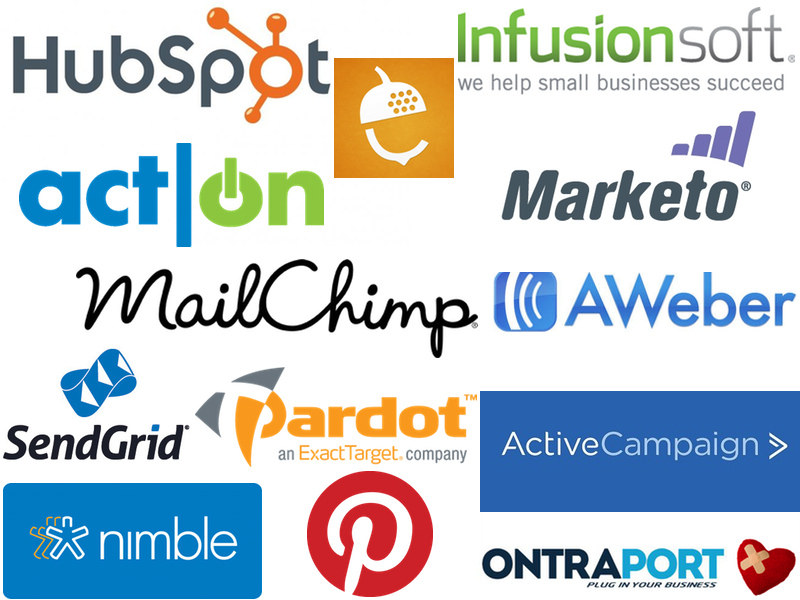An Introduction to Marketing Automation
The term “marketing automation” means many things. According to Marketo, one of the big marketing automation software companies, it “is a category of software that streamlines, automates, and measures marketing tasks and workflows so that companies like yours can increase operational efficiency and grow revenue faster.”
That’s quite a mouthful, so let’s break this down a bit. One of marketing automation’s main goals is to foster relationships with prospective customers, turn those initial interactions into lasting relationships, and continue nurturing those long-term customers.
Well-known software solutions, such as HubSpot, Marketo, and Pardot, allow companies to do this by connecting numerous touch points and channels (i.e. email and content marketing and social media profiles), which you can manage via various dashboards. Marketing automation tools allow businesses to employ various tactics to carry out their marketing strategies:
- Email marketing: optimize email campaigns, personalize subject lines and content to get more opens and click-throughs, and conduct A/B tests.
- Mobile marketing: adapt your digital marketing strategies to reach your customers (and prospects) on their smartphones, tablets, and other mobile devices. Manage your mobile site, email templates, SMS and MMS campaigns, social media, and apps.
- Social media marketing: obtain new customers and engage existing ones. You can also learn about your customers and develop brand advocates via polls, contests, referral programs, and more.
- Inbound (content) marketing: this is the practice of attracting prospects through quality content that naturally brings them to your website. It is also the process of engaging customers with your company to improve your relationship with them.
- Digital Advertising: personalize ads and leverage segments on Google, Facebook, LinkedIn, and other platforms.
Lead Management
Any good marketing automation software will provide you with the tools you need to nurture your leads. This allows you to gather information on all of your customers, which you can use to prioritize and customize your marketing strategies in order to increase sales.
With lead management dashboards, you can view the history of any given customer’s touch-points with your company. This can include emails opened, social media engagements, webpages visits, downloaded resources, and much more. With this intelligence, you can (for example), learn how to better customize an email for certain customers to increase the email open and click-through rates.
Lead management, and marketing automation in general, is especially important for long B2B sales cycles where potential customers may assess your brand many times before making a purchase.
ROI Reporting & Analytics
It’s so important to measure and track your campaigns’ performances in order to know if your efforts are paying off. With powerful ROI reporting tools and analytics, you can draw insights that will help you improve your marketing strategies.
One of the key reporting features is the lifecycle report. With so much information available during a sales cycle, customers may use multiple devices and have many touch-points with your brand before they purchase. The life cycle report collects this data so that you can evaluate the health of your sales funnels to determine where improvements are needed in order to transforms more clicks into closed sales.
The analytics and reporting features are especially important when it comes to evolving consumer purchasing journeys. You’ll need to draw insights from your data in order to adapt your marketing strategies to the ways in which your customers’ purchasing trends change.
Lastly, the convenience of most well-known marketing automation software solutions is that they can integrate with other analytics platforms, such as Google Analytics and AdWords.
Marketing Automation for B2B Companies
Marketing automation for B2B companies can be very effective at enabling companies to work together more seamlessly. Software solutions, like HubSpot, Marketo, and Pardot, helps B2B partners collaborate on email marketing, lead acquisition and nurturing, mult-channel management, and more.
- Email marketing and email drip campaigns
- Analytics for tracking visitors to websites
- Capturing, scoring, and nurturing leads
- Centralized marketing database of contacts
- CRM integration so leads can be assigned and managed by the sales team
- Data reporting and analysis
- Campaign segmentation
- Create and manage landing pages and web forms
- Multi-channel management
- Integration with social media ads
- Integration with Google AdWords
Marketing Automation and B2B Sales
As previously stated, B2B sales cycles can be long. Lead management tools can be highly beneficial to your sales team for a handful of reasons, but ultimately, they could help your sales team shorten the sales lifecycle.
Your sales team can view individual user profiles to access data about:
- Devices used to access the website,
- Landing pages visited most,
- Social media interactions,
- Emails opened,
- Ads clicked on, and
- Other micro-conversions.
With this information at their fingertips, your sales team can analyze a prospective customer’s behavior and provide them with personalized information that could not only encourage them to choose you over somebody else, but also close the deal faster.
There is a lot more that can be said about marketing automation, and every software solution is a little bit different. You need to pick the marketing automation software that best serves your sales team’s needs. If you have any questions about HubSpot, Marketo, Pardot, or marketing automation in general, please leave us a comment below. And if you have any questions about our digital marketing services, please visit our website or get in touch.


